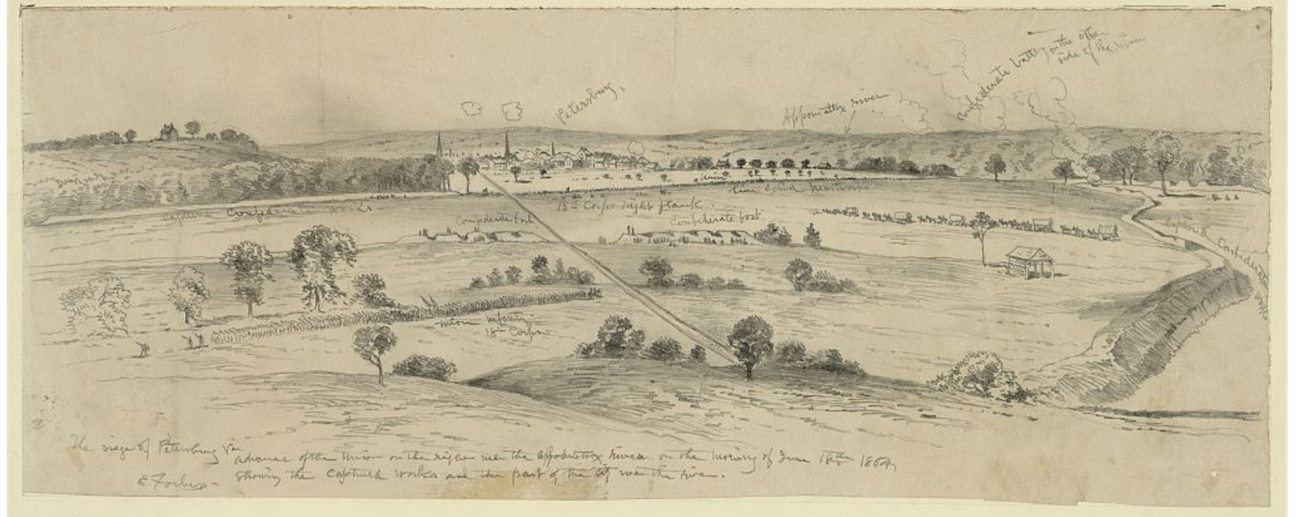Last updated: April 7, 2025
Article
The Breakthrough at Petersburg Battlefield

Image courtesy of the Library of Congress.
Recipient: Virginia Department of Conservation and Recreation
Amount: $129,489.10
Acres: 1.78
From the summer of 1864 to the spring of 1865, Petersburg, Virginia was absorbed into a series of battles as Union and Confederate Armies fought to secure the city’s vital rail center, and a gateway to the Confederate capital in Richmond.
Encouraged by their recent victory at the battle of Five Forks, Lieutenant General Ulysses S. Grant ordered Union forces to conduct a general assault on Petersburg’s defenses on the morning of April 2, 1865. In the pre-dawn darkness, the Union army achieved a breakthrough when infantry under Major General Horatio G. Wright's Sixth Corps breached the Confederate lines held by troops under Lieutenant General A. P. Hill’s command. Hill was killed during battle, confusing Confederate efforts to mount an effective defense. With the breakthrough, the Union Army gained access to the Appomattox River and threatened Confederate supply lines, forcing a total evacuation of Peterburg and Richmond by the Confederates. Seven days later, the Confederate Army surrendered at Appomattox.
The property protected today by a Battlefield Land Acquisition Grant awarded to the Virginia Department of Conservation and Recreation, and their preservation partner the American Battlefield Trust, is the grounds where Hamblin’s brigade of Wright’s Corps advanced towards the Confederate lines and supported the Union breakthrough. Containing freshwater wetlands and semi-forested areas, the property will now remain primarily green space, while a conservation easement will ensure that the historic character of the area is preserved in perpetuity.
Battlefield Land Acquisition Grants from the NPS American Battlefield Protection Program empower preservation partners nationwide to acquire and preserve threatened Revolutionary War, War of 1812 and Civil War battlefields. In addition, the program administers three other grant opportunities: Preservation Planning Grants, which are open to all sites of armed conflict on American soil, and the Battlefield Restoration and Battlefield Interpretation Grants. This financial assistance generates community-driven stewardship of historic resources at the state, tribal and local levels.
